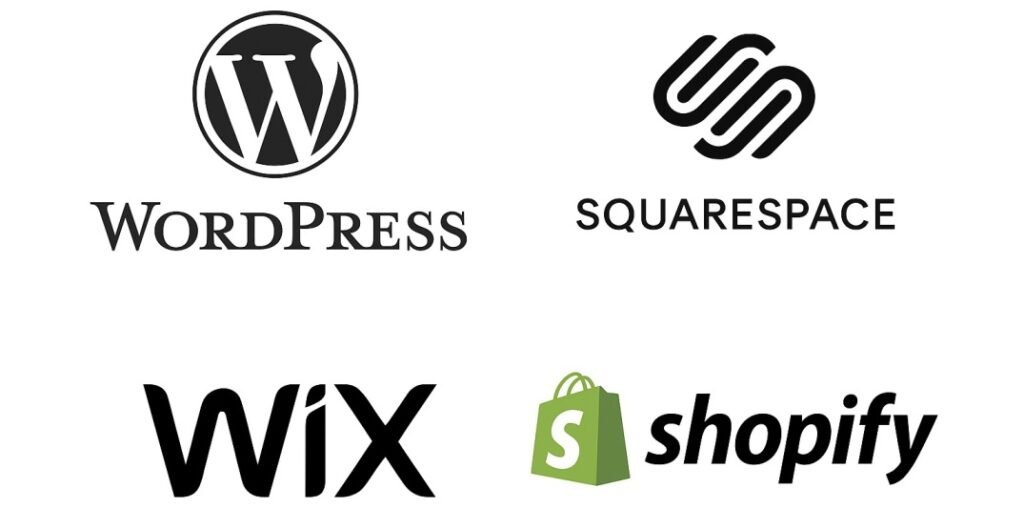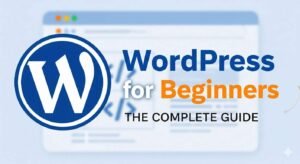Best Platforms for Website Design in 2025
Building a website has never been easier, but with so many tools available, choosing the right platform can feel overwhelming. Whether you are a beginner, a small business owner, a designer, or an e-commerce entrepreneur, the platform you choose plays a major role in your success.
In this article, we’ll explore the best platforms for website design in 2025, their features, pros, cons, and what makes each one unique.

Why Choosing the Right Platform Matters
Your website is the digital face of your brand. A good platform should:
- Be easy to use even if you’re not a developer.
- Offer responsive design for mobile, tablet, and desktop.
- Include SEO tools to help rank on search engines.
- Provide customization options for branding.
- Ensure fast loading speed and security.
Now, let’s dive into the top platforms.
1. WordPress (Self-Hosted)
Overview
WordPress powers over 40% of all websites worldwide. It’s an open-source CMS (Content Management System) that offers unmatched flexibility and control.
Key Features
- Thousands of themes and plugins.
- Full control over hosting, design, and security.
- Highly SEO-friendly.
- Great for blogs, business websites, and online stores.
Best For
Businesses, bloggers, and anyone who wants full customization.
Pros
- Scalable and powerful.
- Endless customization options.
- Supports e-commerce with WooCommerce.
Cons
- Requires some technical knowledge.
- You need to manage hosting and updates yourself.
2. Wix
Overview
Wix is one of the most popular website builders, known for its drag-and-drop interface, hundreds of professional templates, and AI-powered design assistant (Wix ADI).
Key Features
- Over 800 customizable templates.
- Built-in SEO and marketing tools.
- Wix ADI creates a site automatically based on your inputs.
- Integrated e-commerce support.
- Advanced design flexibility with Velo by Wix for coding.
Best For
Beginners, small businesses, portfolios, and anyone wanting a fast and professional site.
Pros
- Easy to use, no coding required.
- Affordable plans.
- App Market for extra functionality.
Cons
- Limited flexibility compared to fully custom platforms like WordPress.
- Switching templates after publishing is difficult.
3. Squarespace
Overview
Squarespace is loved by designers, photographers, and creatives for its stunning, visually appealing templates.
Key Features
- Award-winning templates optimized for visuals.
- Built-in blogging and e-commerce features.
- Integrated email marketing and SEO tools.
- Great analytics dashboard.
Best For
Creative professionals, portfolios, and businesses that value design aesthetics.
Pros
- Beautiful, responsive templates.
- All-in-one solution (hosting included).
- Easy to use.
Cons
- Less flexible than WordPress.
- No free plan.
4. Shopify
Overview
Shopify is a leading platform for e-commerce websites, offering powerful tools to sell online.
Key Features
- Drag-and-drop editor for store design.
- Multiple payment gateways.
- Inventory and shipping management.
- App store for extended functionality.
Best For
Businesses focused on online sales.
Pros
- Great for scaling e-commerce businesses.
- Reliable and secure.
- 24/7 customer support.
Cons
- Monthly fees can add up.
- Less suited for non-e-commerce websites.
5. Webflow
Overview
Webflow is a visual design tool that gives you the power of code without writing it. It’s popular among designers who want more control than Wix but without hard coding everything.
Key Features
- Visual editor with clean, exportable HTML/CSS.
- Built-in CMS.
- Hosting included.
- Advanced animations and interactions.
Best For
Designers, agencies, and professionals looking for pixel-perfect control.
Pros
- No coding required, but very customizable.
- Professional-grade results.
- Great for responsive design.
Cons
- Learning curve for beginners.
- Higher pricing compared to Wix.
6. GoDaddy Website Builder
Overview
GoDaddy offers a quick and simple solution for beginners who want to get online fast.
Key Features
- AI-powered site builder.
- Built-in marketing tools.
- Integration with GoDaddy domain services.
- Mobile-responsive templates.
Best For
Small businesses and personal websites.
Pros
- Very easy to use.
- Includes hosting and domain in one place.
- Good for basic websites.
Cons
- Limited design flexibility.
- Not ideal for large websites.
7. Weebly & Jimdo (Bonus Options)
These are beginner-friendly platforms that focus on simplicity.
- Weebly is owned by Square, great for small businesses.
- Jimdo offers AI-assisted site creation.
Which Platform Should You Choose?
- For beginners: Wix or GoDaddy.
- For blogs & full control: WordPress.
- For creatives: Squarespace.
- For e-commerce: Shopify.
- For designers: Webflow.
Final Thoughts
Choosing the right platform depends on your goals, budget, and technical skill level. If you want an easy-to-use platform, go for Wix or Squarespace. If you need maximum flexibility and scalability, WordPress is unbeatable. For e-commerce, Shopify is the best.
Frequently Asked Questions (FAQ)
What is the best platform to design a website for beginners
Wix and Squarespace are great options for beginners because they offer drag-and-drop editors, pre-designed templates, and easy customization without coding.
Which platform is best for blogs
WordPress (self-hosted) is the best platform for blogging because of its flexibility, SEO tools, and thousands of themes and plugins.
Which platform should I choose for e-commerce
Shopify is the most reliable platform for e-commerce websites because it offers powerful tools for product management, payment gateways, and inventory control.
Is WordPress free to use
WordPress software is free, but you need to pay for hosting, a domain name, and possibly premium themes or plugins.
Can I create a website without coding knowledge
Yes! Platforms like Wix, Squarespace, and GoDaddy Website Builder allow you to build websites without any coding skills using drag-and-drop tools.
Which platform offers the best design flexibility
Webflow offers the best design flexibility for professionals who want precise control over design without hand-coding everything.
Are these website builders SEO-friendly
Yes, most platforms like Wix, WordPress, and Squarespace provide built-in SEO tools or plugins to optimize your website for search engines.
Can I move my website from one platform to another later
Migration is possible, but it can be complicated and sometimes requires technical assistance, especially when moving from drag-and-drop builders to WordPress.
How much does it cost to build a website on these platforms
Costs vary depending on the platform and plan: Wix: $14–$39/month, Squarespace: $16–$49/month, Shopify: $29–$299/month, WordPress: Hosting costs around $3–$10/month, plus domain and optional themes.
Which website builder is best for speed and performance
WordPress (with good hosting) and Webflow generally provide the best performance and speed if optimized correctly.





